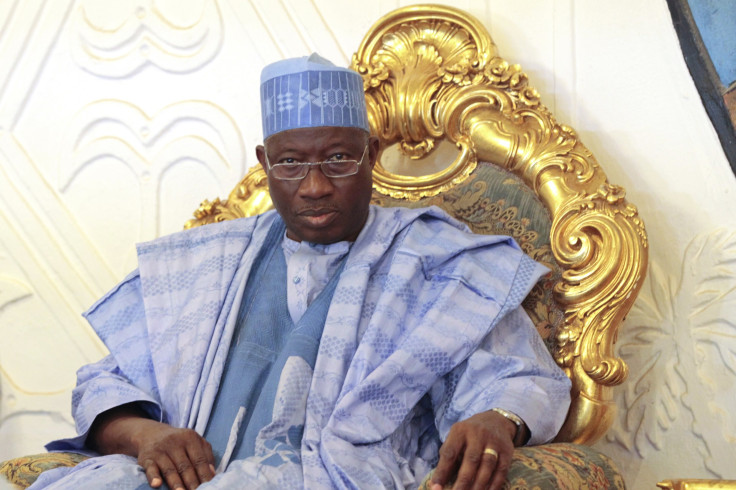Nigerian Outgoing President Goodluck Jonathan Rejects Board Of Trustees Chairmanship Of Peoples Democratic Party

Nigerian outgoing President Goodluck Jonathan rejected an offer Tuesday to take over as chairman of the board of trustees of his Peoples Democratic Party (PDP), local media reported. The board’s former chairman, Anthony Anenih, said he resigned from the post last week to allow Jonathan to assume the chairmanship.
Jonathan had asked the board’s chairman to step down, Nigerian newspaper THISDAY in Lagos reported. Anenih wrote a letter to Jonathan formally resigning from the position and cited the “current state of affairs” in the PDP as his reason. “I have decided to formally put my offer in writing to enable you to effectively assume the Chairmanship of Board of Trustees or approve a process that will enable any other member of the BoT who is considered competent, to assume the position,” Anenih wrote in the letter dated May 20, Premium Times in Abuja reported.
But the outgoing president turned down the position, and the board of trustees instead appointed Defense Minister Haliru Bello as acting chairman for a period of a couple months. Bello said he would work to reposition the once-ruling party for its role as the opposition, Vanguard Newspapers in Abuja reported.
The PDP’s national chairman, Adamu Mu’azu, also resigned last week. Bitter party members had asked Mu’azu and others to step down after the PDP was unseated from majority rule for the first time in 16 years. Several high-ranking PDP members have ditched the party to join the party-elect All Progressives Congress (APC). The widespread defections have raised fears the PDP will collapse and Nigeria will become a one-party state after years of no viable opposition in the political landscape that was controlled by the PDP. Mu’azu had said his party had a redefining moment after suffering defeat at the polls.
“Nigeria is bigger than any political party, individual or group, and her overall interest must be our priority at all times,” Mu’azu told online Nigerian newspaper the Daily Post. “Rather than demoralize us, this election has afforded us great lessons and we are now more than ever before reinvigorated for the race ahead.”
Jonathan lost re-election to APC candidate Muhammadu Buhari in March. It was the first time an incumbent lost the presidential poll in Nigeria, Africa’s richest and most populous nation. Jonathan’s party also lost control of Nigeria’s Senate to the APC, marking the first time the PDP didn’t hold federal legislative leadership in Nigeria since it became the majority ruling party at the end of military rule in 1999.
© Copyright IBTimes 2025. All rights reserved.




















